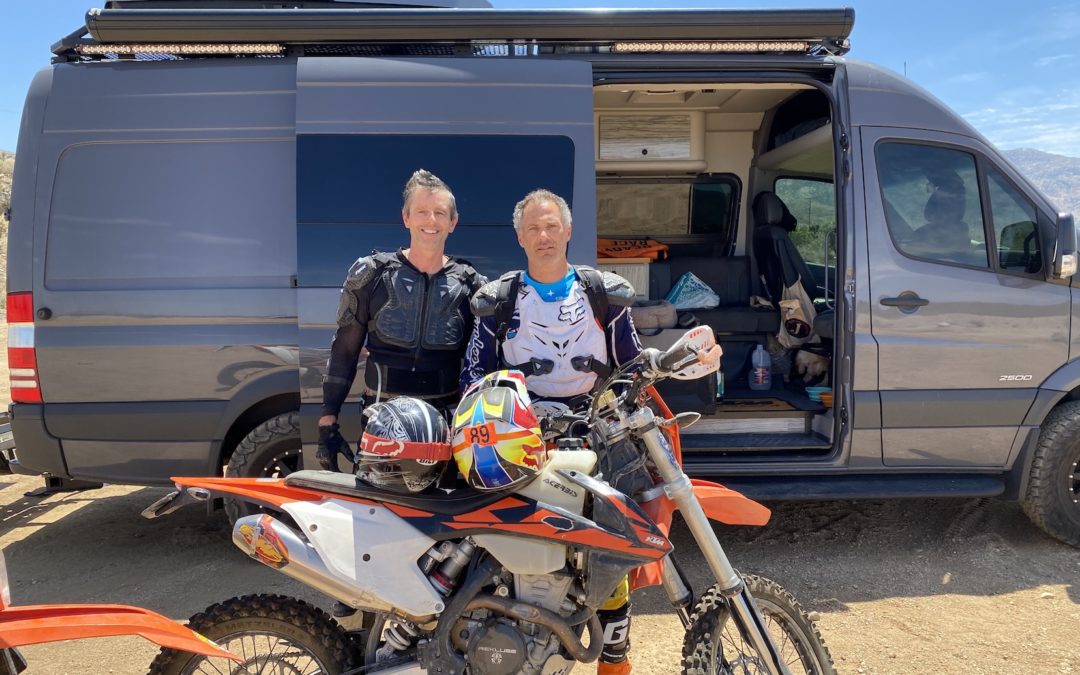If you’ve ever contemplated a much simpler life, you’re not alone. Many people make the conscious choice to turn their large, stationary homes in for much more modest homes on wheels. It can be liberating and rewarding, but as with other things in life, it takes work, dedication, and willingness.
What Is Van Life?
This social movement has been part of society since the 1960s and was most commonly practiced by “hippies” living out of their vehicles. The idea behind living the Van Life is to live a carefree life never really knowing what comes next or having to worry about traditional expenses. Some say that it is a great way to practice being a minimalist.
Benefits of the Van Life
For those with the right mindset and who have prepared for such a free lifestyle, there can be an array of benefits, including traveling anywhere, setting your own schedule, living a flexible lifestyle, lowering the cost of living, and simplicity—all of which can have a positive effect on your mental and spiritual health.
More specific benefits include personal growth, freedom to practice favorite hobbies or learn new ones, and the opportunity to meet new people and spend time exploring America. Nomads of the Van Life particularly enjoy being in charge of themselves.
Challenges to Consider
The first obstacle is the most obvious: space. Depending on the size of your group, elbow bumping and constant rearranging of items will be more constant than you can imagine.
Finding the proper water source for washing clothes, cleaning dishes, cooking, drinking, bathing, and brushing your teeth can be quite the task. Keep this in mind during the warm summer months when vehicles can get extremely hot, and during the winter months when the temperatures can freeze water sources.
Getting tired of driving and feeling homesick are very real difficulties while living the Van Life. Adventures are exciting, but not being able to share them with your closest families and friends can be lonely.
Another thing to keep in mind is the health of your van. In times when you may need to bring it to a mechanic, not only will you be without a home for a while, you’re going to have funds set aside for unexpected services. Establishing a plan to earn income while on the road can be vital. This income will also help pay for gas, insurance, and a place to sleep if you’re without your vehicle.
Remember, not every city will have the amenities you need or a culture where strangers are welcome. Be selective in your locations and stay safe. Planning and preparing are everything when drastically changing your lifestyle.
Van Options
With Van Life becoming more popular each year, many retailers offer Van Life options. Automakers such as Mercedes, Volkswagen, and Ford are among the top sellers of home vans.
There are also possibilities for converting your vehicle into a suitable liveable van. This takes a lot of hard work, time, and the expertise of someone in the industry. Some folks add campers to their pick-up trucks or purchase mini school buses to convert into homes on wheels. Budget, time, and patience will determine which route is best for you.
Expenses
The cost of converting a vehicle or purchasing a turnkey one will depend on the demand and circumstances of the situation. New van homes prices start at around $30,000 for the very basics and can go up to $70,000 or more as features and amenities are added. Converting a vehicle could potentially cost you just as much—or a lot less if you opt for the bare minimum, which can then be between $5,000 and $15,000 depending on the original condition of the vehicle. Again, it all depends on your time, budget, commitment, and willingness and ability to do the work yourself.
The monthly expenses of a Van Life can vary. If you expect to partake in daily activities, eat out, or pay for camping sites, the average cost is roughly $1,000 per month, give or take on how often you splurge or need repairs.
Tips for Easing into the Van Life
Take things as they come and don’t expect anything. There will be highs and lows.
If possible, start your Van Life with a vehicle free of service needs.
Downsize wherever possible, including your electric system.
Research and plan for campsites, whether free or paid, booking ahead of time if possible.
Take a shorter “test run” of the lifestyle before embarking on a long-term trip.
Practice organizing and cleaning in the confined space. Hygiene is important on the road.
Safety should always be your priority.
Hitting the Road
If you think you’re ready for the Van Life, make sure to plan, prepare, and adjust your expectations accordingly. There will be struggles but for many people looking to live a basic lifestyle that’s filled with adventure and personal growth, nothing will offer this up quicker than living the Van Life.

